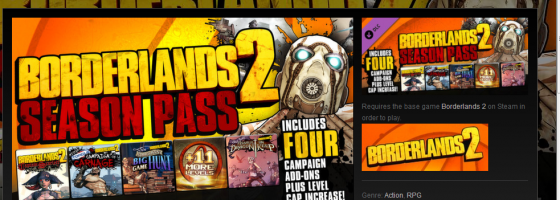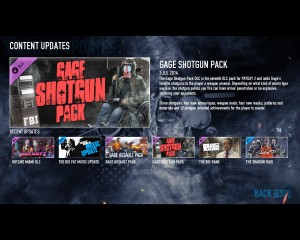For the first time in what seems like forever, I’m actually interested in AAA releases. Between Alien Isolation, Borderlands Presequel and Middle Earth Shadow of Mordor; there are some big names coming out. But besides big names there is also big money, a total cost of $140 not counting season passes that come in at $30 apiece. The use of a season pass seems like the evolution of the pre-order model and is up for debate on how useful they are.
Past Pre-order Problems:
In a previous post I talked about the history of pre-orders and how their usefulness in today’s market has declined. Where they were once used as a means to secure a copy of a game due to limited numbers, in today’s market where digital copies are infinite, you don’t need to buy a game early.
That’s where the concept of pre-order bonuses began as a means to convince someone to buy a game sight unseen. But even then that’s not a huge motivator as most content will be available after release in some shape or form. This is primarily because it would be insane for a developer to withhold content in any shape from paying customers.
One of the big changes in how games are being developed these days is treating them as a service or extending development to continue working and improving on a title.
This has worked for Team Fortress 2, League of Legends, Payday 2 and a host of other games. We’ve seen that by continuing to develop content for a game, developers and publishers can earn more money and keep their fans happy in the process.
But there is the other side of things where people see DLC and micro transactions as a means to cheapen the original experience and get people to spend more overtime.
Now the games that I mentioned above are not examples of that, but we have seen developers with day one DLC or on the disc DLC as a means of developing content during production to have it ready to be sold separately. And even then, additional content means that the investment needed to get everything out of a game has increased due to the continued development.
And this is where the concept of a season pass fits in with our discussion and why people are really hesitant about this model.
Paying up Front:
A season pass is a simple concept: You’re paying a one lump sum for content that hasn’t been developed yet. Some developers say that their pass gives you everything, while others may only give you the new gameplay related content.
Gearbox got in trouble with their season pass for Borderlands 2 by not properly explaining that there would be more gameplay related content released that would not be factored into the pass. And this is where the concept of the season pass loses me, as it’s one of those things that aren’t properly defined.
Looking at the games I mentioned at the top, the developers are asking you to spend almost as much as another game would cost for their pass without any real descriptions of what you’ll get. Sure, they say you’ll get a new map, quest, etc, but that’s not the same as seeing them out. With Borderlands 2, the different DLC episodes had varying degrees of quality with some better than others.

Season passes are like early access or kickstarter in how you’re paying for something that isn’t done which can be risky in today’s market.
Then there is the inherent risk that people are becoming more and more weary of thanks to kickstarter and early-access: Spending money on future promises.
Batman Arkham Origins had a season pass from the start which hinted at getting a lot of content over the year, but the game’s poor reviews left fans with only one piece of story related content.
There doesn’t seem to be any bonus in actually getting the season pass at launch like getting something for free or getting a discount. And just like with the regular game, there is always the good chance that the developers will release a “game of the year edition” with all the content bundled together that when combined with a sale would cost far less than buying it now.
I know some people have complained that with Payday 2 that they would prefer to buy a season pass instead of micro transactions. The issue is that Overkill had committed to working on DLC for a period of one year originally, but that has changed due to the success of it. And because of that, there is no guarantee just how much DLC they would release that would fit into a pass. But again, with seasonal sales, it would still be cheaper waiting for a discount than hoping for a $30+ season pass.
So again this raises the question: Why should someone buy a season pass? And just like with pre-ordering, I’m finding myself less interested in spending money upfront for something that I’m not even sure I’m going to like.
What’s next?
The big question in my mind is if the season pass craze doesn’t take off, what will publishers and developers try next? There are not a lot of options for pre-order content these days that could be used as an incentive. Discounts may work, but that wouldn’t fly as the developers want to get every possible dollar out of their game.
As we’ve talked about on the cast and in previous posts, something has to give. Either developers will actually look at other markets and give discounts on pre-ordering or they will have to suck it up and realize that people aren’t interested in spending money on content that the developer isn’t even sure what’s coming.



